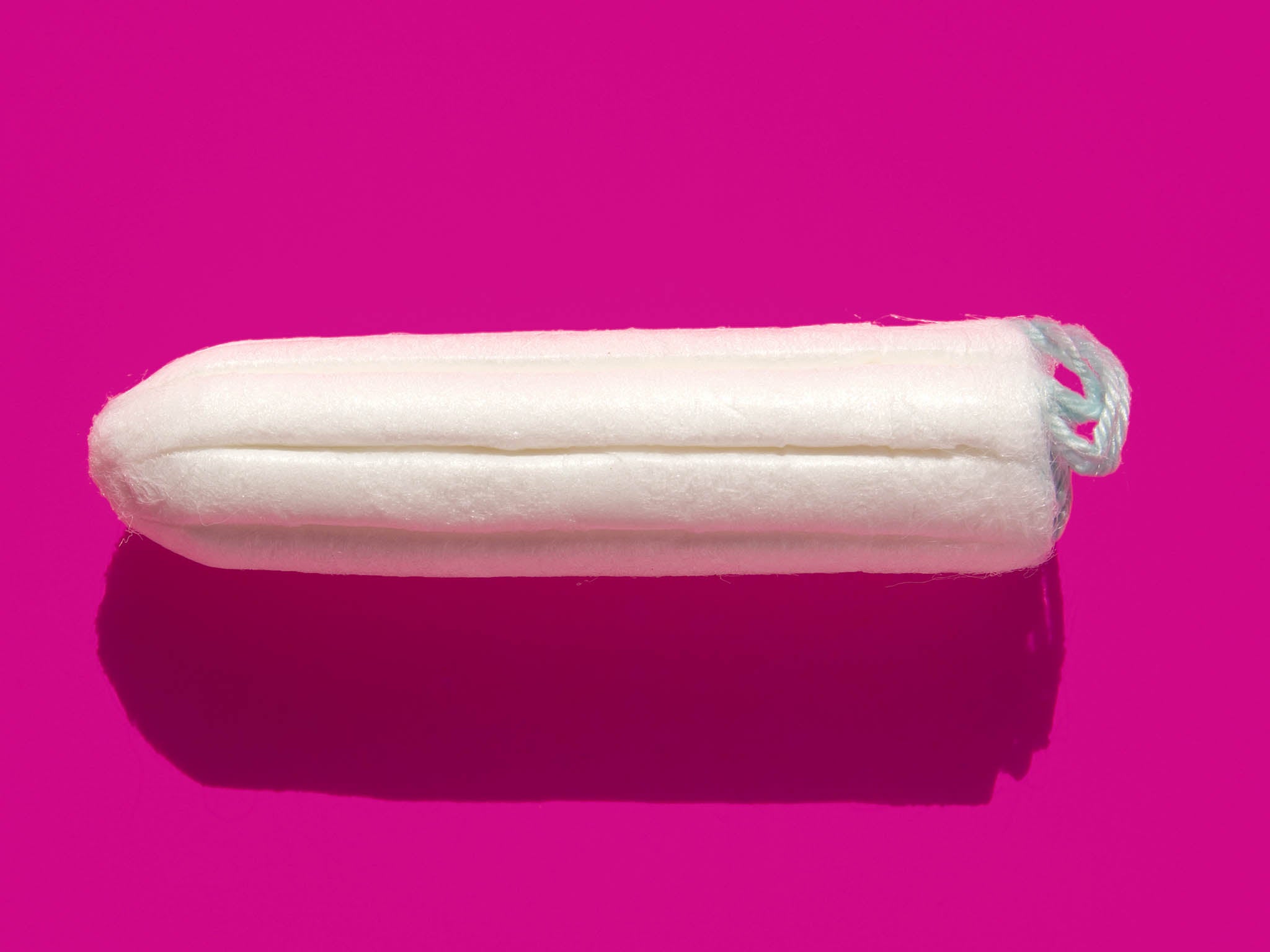Doctors' leaders call for hospitals to provide inpatients with free sanitary towels and tampons
British Medical Association argues it is inconsistent for some hospitals to give out razors and shaving foam but not offer women items for their periods

Your support helps us to tell the story
From reproductive rights to climate change to Big Tech, The Independent is on the ground when the story is developing. Whether it's investigating the financials of Elon Musk's pro-Trump PAC or producing our latest documentary, 'The A Word', which shines a light on the American women fighting for reproductive rights, we know how important it is to parse out the facts from the messaging.
At such a critical moment in US history, we need reporters on the ground. Your donation allows us to keep sending journalists to speak to both sides of the story.
The Independent is trusted by Americans across the entire political spectrum. And unlike many other quality news outlets, we choose not to lock Americans out of our reporting and analysis with paywalls. We believe quality journalism should be available to everyone, paid for by those who can afford it.
Your support makes all the difference.Female hospital patients should be provided with free sanitary towels and tampons, doctors have said.
It is inconsistent for some hospitals to give out razors and shaving foam but not offer women items for their periods, the British Medical Association (BMA) said.
Towels and tampons are a basic human need, just like food, and should be made freely available at all hospitals in Britain, it said in a letter to NHS England's chief executive Simon Stevens.
Some patients cannot afford to buy their own products, while others suddenly find themselves in hospital without warning with nobody to rely on, it added.
The BMA sent Freedom of Information requests to NHS trusts and health boards in the UK and received responses from 187.
The research found that 42 per cent either did not supply sanitary products at all, will only supply small amounts, or will supply them only in the case of an emergency.
For those that did have a supply, tampons and towels were often only available on gynaecology or maternity wards. Only 22 per cent of hospitals said they could easily be bought on site by the patient.
Some trusts and health boards said they spent nothing on sanitary products for inpatients. For those that did, the average spend was 71p per bed per year.
A rough estimate from the BMA suggests UK hospitals could supply the products for around £120,000 per year.
“Action must be taken to ensure that patient experience of care is not jeopardised by the non-availability of these essential items,” Professor Dame Parveen Kumar, the BMA’s board of science chair wrote in the letter to Mr Stevens.
“Patients must not be deterred from undergoing necessary treatment, or hindered in their recovery, because they are unable to access, or embarrassed to request, sanitary products. With patient experience and quality of care being such a clear priority for the NHS, sanitary products, which are relatively inexpensive, should be provided for free and readily available to all inpatients at hospital.”
BMA medical student committee member Eleanor Wilson, who has championed the issue, said that patients who are under the care of the NHS need to be made to feel as welcome and looked after as possible.
“By not providing them with something so key to their health and wellbeing, it has a big impact on their sense of self-worth – we are effectively withholding that dignity from them,” she said. “While some hospitals have good provision, in others, patients have had to face embarrassment and hope that relatives can bring them in, which for some is not an option, and it can often become more challenging for young and teenage paediatric patients.
“Like razors, shaving foam, toilet paper or food, it should be part of a basic package that is available to patients when they come under our care in hospital.”
Sanitary products in the UK are classed as a “luxury, non-essential item” and taxed at 5 per cent – with the average lifetime cost of sanitary products estimated at £4,800.
Last year, research found women who have experienced period poverty are more likely to suffer from anxiety or depression, struggle to pay their bills and have an unfulfilling love life.
Additional reporting by Press Association
Join our commenting forum
Join thought-provoking conversations, follow other Independent readers and see their replies
Comments